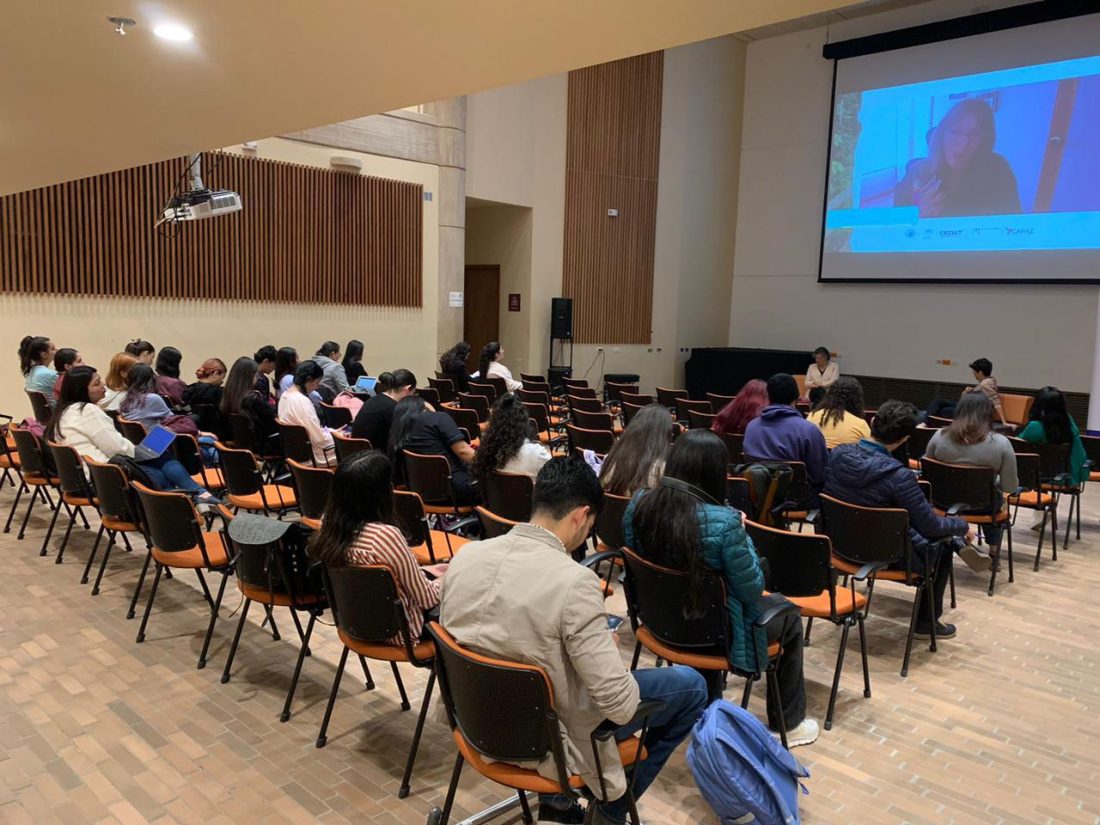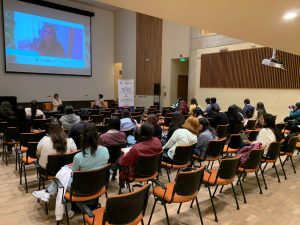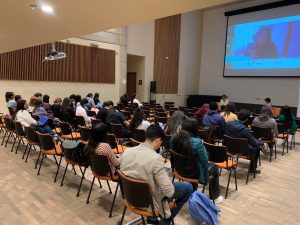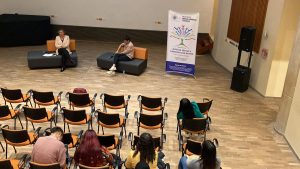
Methodology: how was truth constructed at the CEV?

Photo: Communications Team, Universidad de Caldas
The sixth session of the international inter-university chair ‘Continuing the Road to Peace: The Legacy of the Colombian Truth Commission‘ took place on September 16 at the Rogelio Salmona University Cultural Centre at Universidad de Caldas. On this occasion, students, teachers, and professionals from the Special Jurisdiction for Peace (JEP) and the Commission for the Clarification of Truth, Coexistence and Non-Repetition (CEV), presented key points to define a working methodology, carry out a memory exercise and build a polyphonic truth.
Liliana Uribe, human rights defender and CEV researcher, commented on the most representative challenges during her contribution to the CEV, stressing that, in theory, “there could be no confidential information for the commission, but in practice, there were many obstacles to accessing it”.
One of the key factors to achieving social and political legitimacy was the methodology. This is why this conversation analysed the approaches, techniques and research methods used to produce the CEV’s Final Report on the Colombian armed conflict. It also discussed the methodological challenges faced and how to resolve them in order to fulfil its mandate.

Fotografía: Equipo de Comunicaciones, Universidad de Caldas
Gabriel Ruiz, professor at the School of Social and Human Sciences at the University of Medellín, echoes this view of access to information, its levels, and the complexity of processing it, commenting that “if we want to get closer to the truth of the Colombian armed conflict, the first thing we have [to do is] forget about thinking of it in terms of good guys and bad guys”.
Victoria Lugo, director of the Master’s in Social Justice and Peacebuilding, emphasised the process of listening and dialogue with the different parties involved, mentioning that the events of the war that we were able to learn about led us to “very deep understandings and with many edges in all senses, which methodologically is a challenge”.

Fotografía: Equipo de Comunicaciones, Universidad de Caldas
Finally, the day concluded by stressing the importance of the Chair, in that week after week the legacy of the Truth Commission has been analysed from different academic, social, and political perspectives. The community is also invited to upcoming events and to consult the different sources of information that fuel the peace process in Colombia.
Next session
The seventh session of the CAPAZ international inter-university chair “Listening for the Truth” will be held at the Universidad del Norte on Friday September 23 at 8:30 a.m., and streamed live on our YouTube channel https://youtu.be/AIlS3FgOObQ



